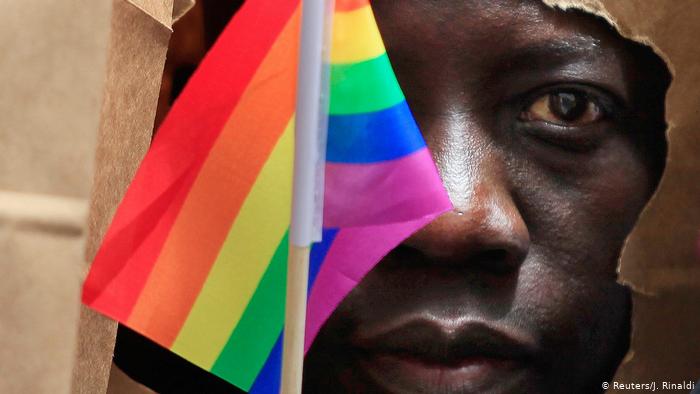One of the sponsors of a bill against LGBT+ activities in Ghana has said instead of the misconception that the proposals in the bill will criminalise homosexuality, they should be perceived as seeking to expand existing law on the multi-faceted phenomenon in the country.
Samuel Nartey George, the legislator for Ningo Prampram, said one of the core objectives of the bill he and other MPs are sponsoring will be, for instance, ending active advocacy of the phenomenon and the deliberate moves to indoctrinate young Ghanaian children to accept something that flouts Ghanaian culture.
“We have never had people actively recruiting and being paid to be recruiters. That is what is happening now. That is the boldness that has come into this category of perversion -- for wont of a better word,†he said.
Speaking on Newsfile on Saturday, July 31, 2021, the outspoken anti-LGBT+ advocate said the proposed bill that is tabled for first reading in Parliament on Monday, August 2, 2021, seeks to expand existing legislation on the evolving dimensions of LGBT+ activities.
“This [bill] is actually expanding on existing legislation. So when I get calls from international media houses and even local media houses who say your bill is seeking to criminalise homosexuality I say to them ‘no I am seeking to expand existing legislation'. Basically, this bill is to strengthen the legal framework.
"We have seen the police arrest persons alleged to have been involved in [the different types of the new LGBT+ phenomenon] but they are on unable, on the basis of section 104 of the Criminal Code, to carry out prosecution of the acts. Because 104 is no longer ‘fit for purpose’ given the scope of this…phenomenon,†he said on Joy News’ current affairs programme.
He said Ghana’s existing law against homosexuality has a loose provision against unnatural carnal knowledge, which seems to focus on the gay aspect of LGBT+, leaving out the many evolutions 61 years after the law was passed.
“Now people are being paid to go out and recruit young girls into ‘supi supi’ [lesbianism]; go out and recruit boys into active homosexualism. Now it is becoming a commercial enterprise. There is money being thrown at it. That is becoming a threat to our cultural and national fibre,†he stressed.
READ ALSO: Ghana’s anti-LGBT+ bill lands in Parliament on Monday
Meanwhile, former Director of Amnesty International in Ghana, Robert Amoafo, has said Ghanaians must accept homosexuality and the many aspects of the LGBT+ spectrum because they have always been a part of Ghanaian culture.
“We have had homosexuals in Ghana and Africa since the beginning of the world and wherever it may be. And all the things that people mention, even the underpinning discussions by some of the proponents of this bill, clearly shows that homosexuality is not something that started by the West,†he said on Newsfile.
Sam George cited recent revelations that there was a fierce attempt by faceless people to recruit students of the all-girls OLA Girls Secondary School into lesbianism.
Headmistress of the school told a packed PTA-meeting last month that some of the students have complained to her about being lured with money into sleeping with influential women.
The bill prescribes severe sanctions against various activities of the LGBT+ community.
Although the bill was co-sponsored by legislators such as Emmanuel Bedzrah, MP, Ho West; Samuel Okudzeto Ablakwa, North Tongu; Andy Appiah Kubi, Asante Akim North; John Ntim Fordjour, Assin South; and Kwaku Asante-Boateng, Asante Akim South, Sam George has become the poster boy for the bill for being the most vocal among the anti-LGBT legislators.
The bill when passed into law will punish a person who willfully commits a “grossly indecent act†with summary conviction, to a term of imprisonment of not less than six months and not more than one year.





